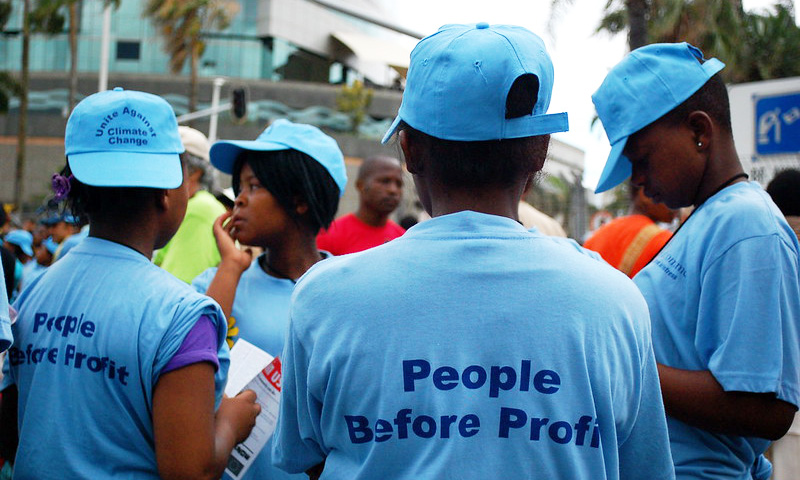
The combo of the still expanding COVID-19 and a third week of crashing markets worldwide mean that a recession in the global and US economy is likely impossible to avert.
The Russian decision to keep up oil production levels (to protect prices) is having a multiplier impact on already severely depressed market expectations on several fronts. That is: if supply is not reduced in a time of sharply reduced demand, prices collapse. Russian oil interests are strongly linked to the state. US ones are not. Despite all the subsidies to oil and shale corporations, falling prices will eat voraciously into Exxon profits. The latest stock market dive is the result. It’s worth noting the Achilles heel of oil development: it is very expensive, and projects underway can take 50 years before a full return on investment.
The secondary impacts from the drop in oil prices will likely be widespread, affecting nearly every sector of the economy.
First to be hit will be the areas of greatest social consumption: travel, entertainment, restaurants, and sports; second, manufacturing and retail (Walmart, GM, Ford, for example), which are affected by supply chains broken in infected countries where workers cannot report to work due to fear and quarantines; and third, workplaces where workers have little or no sick pay and no backup of any kind without weekly paychecks.
How long will it last? Much depends on the coronavirus pandemic. If—as many hope—the virus recedes as warm weather hits the affected countries, the worst health impacts and their immediate costs may be alleviated. However, the sharpness of the economic effects probably will mean the damage to working families will linger much longer. The trillion dollars lost in the market will put many firms and banks out of business, even those whose balance sheets may have looked solvent a week ago, and some consumption changes may be permanent.
A massive fiscal stimulus along the lines of the Green New Deal, or something comparable, and universal health care would be the correct federal affirmative policy. But we know that will not happen under Trump or the Republicans. A tax cut for Boeing and bailouts for insurance companies unable to address the pandemic are as far as they will go. Remember: the well-being of poor and especially non-white families are not exactly top-of-mind for this administration.
What to do? Progressive and left organizations should start preparations now.
• Plan to form unemployed poverty councils now. Make them non-partisan—no litmus tests for participation—with two purposes: 1) self-organization to provide services of safety and survival that state and local budgets will likely not be able to handle; and 2) force the political structure to appear before the victims. The worst fates await the working class when the media and bureaucracies make it invisible.
• Get involved with the Poor People’s Campaign, which, among other activities, is organizing a mass march on Washington, DC, on June 20.
• Defeat Trump. Watch out for and resist “states of emergency” declared on fraudulent grounds, intended to establish a Trump dictatorship before the election. Register voters and mobilize them to show up at the polls. A decisive defeat of Trumpism on November 3 will give movements more breathing space to grow stronger.
The recession is headed our way. The working-class and people’s movements must meet the challenge of organizing during tough times.
Image: theverb.org, Creative Commons (BY-NC 2.o).


 Join Now
Join Now